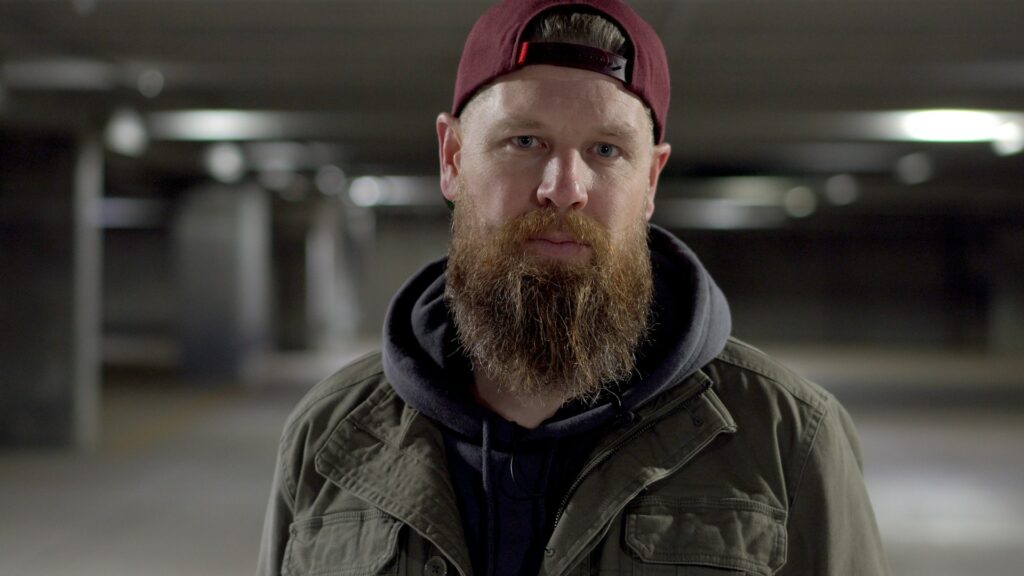Self-improvement is generally seen as a worthwhile pursuit, and for good reason.

We all want to grow, be better versions of ourselves, and achieve our goals. It feels great to tick off that to-do list, hit those milestones, and see progress. But here’s the thing: sometimes, all that focus on self-improvement can backfire. What starts out as a positive habit can quickly evolve into a source of stress, pressure, and anxiety. If you’re constantly striving to do better and be better, it can feel like the finish line is always just out of reach. It becomes a problem when your desire for growth actually starts contributing to your anxiety instead of helping you thrive. Here’s how you know that’s happening.
1. You’re always chasing perfection and will settle for nothing less.

There’s nothing wrong with wanting to improve, but if your self-improvement habit revolves around achieving perfection, it can quickly turn into a source of stress. The constant need to be flawless can make you feel like you’re never good enough, even when you do make progress. Perfectionism can create a never-ending cycle of striving, where, no matter what you accomplish, it’s still not perfect enough. The pressure to be brilliant at everything, whether it’s in your career, appearance, or personal life, can and usually does trigger anxiety. The key is to embrace progress over perfection. It’s okay not to have everything figured out, or to make mistakes along the way. What matters is that you’re moving forward, even if it’s not in a perfect, linear fashion.
2. You’re measuring your worth based on your achievements.

Living in such a productivity-driven world means it’s easy to fall into the trap of measuring your value by what you accomplish. However, when you tie your worth to a constant stream of achievements, you risk burnout. Self-improvement should be about becoming the best version of yourself, not about constantly “proving” your worth. If you feel anxious every time you haven’t hit a goal or “levelled up,” it’s a sign that your self-improvement routine is no longer helping. Instead of seeing yourself as valuable only when you succeed, try to flip your focus to self-compassion. Recognise that your worth isn’t tied to what you do — it’s about who you are.
3. You’re focusing too much on what you “should” be doing.

It’s so easy to get wrapped up in the idea of what you “should” be doing. Whether it’s exercising more, learning a new skill, meditating every day, or reading a certain number of books, the list of self-improvement “shoulds” can feel endless. But when your focus is on what you should be doing, instead of what feels right for you, you’re setting yourself up for failure and frustration. You’re not a robot, and you don’t have to follow a preset list of self-improvement tasks to be worthy or successful. Let go of the idea that you have to meet a certain standard or fit a certain mould. Instead, listen to your body, mind, and heart. What do you genuinely want to improve in your life, and why? That’s the path to a healthier approach to self-growth.
4. You’re constantly comparing yourself to other people.

Social media is full of success stories, fitness transformations, and seemingly perfect lifestyles, and it’s easy to feel like you’re falling short when you’re constantly comparing yourself to everyone else. If your self-improvement habit involves comparing your progress to others, you’re only adding unnecessary anxiety to the mix. Everyone’s journey is different, and measuring yourself against someone else’s success is not only unhelpful but can also stifle your growth. Focus on your own path, and celebrate the steps you’re taking, no matter how small. The only comparison that matters is with yourself. Where were you yesterday, and where are you today?
5. You’re neglecting your mental health in the name of productivity.

Self-improvement often goes hand-in-hand with hustle culture, where the emphasis is on doing, achieving, and constantly moving forward. But if you’re so caught up in productivity that you’re neglecting your mental health, you’re doing more harm than good. Taking care of yourself is a vital part of any self-improvement journey, and that includes recognising when you need to rest, reflect, or even take a break from the relentless grind. If your self-improvement routine feels more like an obligation than a personal choice, it’s time to take a step back. Self-care isn’t just about face masks and bubble baths; it’s about giving yourself the space to pause, process, and recharge.
6. You’re putting unrealistic pressure on yourself.

Ambition is great, but if you’re constantly putting unrealistic pressure on yourself to be the best, do the most, and be perfect all the time, it’s bound to lead to burnout and anxiety. Striving for improvement is healthy, but it’s important to set realistic goals and timelines. If your goals are too lofty, or you’re expecting results overnight, you’re creating a situation where disappointment is almost guaranteed. Try breaking your goals into smaller, more manageable steps. Celebrate each milestone, and remember that slow, steady progress is often more sustainable (and much less stressful) than trying to rush through everything at once.
7. You’re ignoring your emotions in the name of progress.

In the quest for self-improvement, it’s easy to push emotions aside, thinking that they’re just obstacles on the path to success. But ignoring your feelings can only lead to more stress and anxiety in the long run. Your emotions are valid and important, and they play a key role in your personal growth. If you’re constantly telling yourself to “get over it” or “keep going” instead of addressing what you’re feeling, you’re setting yourself up for mental exhaustion. Take time to sit with your emotions, understand them, and process them. You’re not getting stuck in them; you’re acknowledging them, letting them move through you, and allowing them to inform your growth.
8. You’re losing sight of what truly matters to you.

The more you focus on “doing” and “achieving,” the easier it is to lose sight of why you started in the first place. Is your pursuit of self-improvement aligned with your values and goals, or are you just doing what you think you “should” do? Sometimes, in the hustle to improve ourselves, we can forget what truly brings us joy and fulfilment. Take a moment to reconnect with what matters most to you. Is it spending time with loved ones? Is it feeling confident in your own skin? Is it finding peace within yourself? Keep your “why” front and centre, and let that guide your self-improvement journey instead of just focusing on the next milestone.
9. You’re trying to change too many things at once.

Self-improvement can feel overwhelming when you’re trying to change everything all at once. You might be juggling work, relationships, fitness goals, and a million other things, all while striving to be the “best” version of yourself. But when you’re spread too thin, nothing gets the attention it deserves. Instead of attempting to overhaul every aspect of your life in one go, focus on one area at a time. Take it slow, and remember that meaningful change happens over time, not overnight.
10. You’re seeing self-improvement as a destination you need to reach.

It’s easy to view self-improvement as a destination—once you reach your goals, you’ll be happy, fulfilled, and perfect, right? But the truth is, self-improvement is a journey, not a finish line. There’s always something to learn, something to grow from, and ways to evolve. If you think there’s a “perfect version” of yourself waiting at the end of the road, you’re setting yourself up for disappointment. The key is to enjoy the process, embrace your growth, and remember that you’re already enough, even in the middle of your journey.


